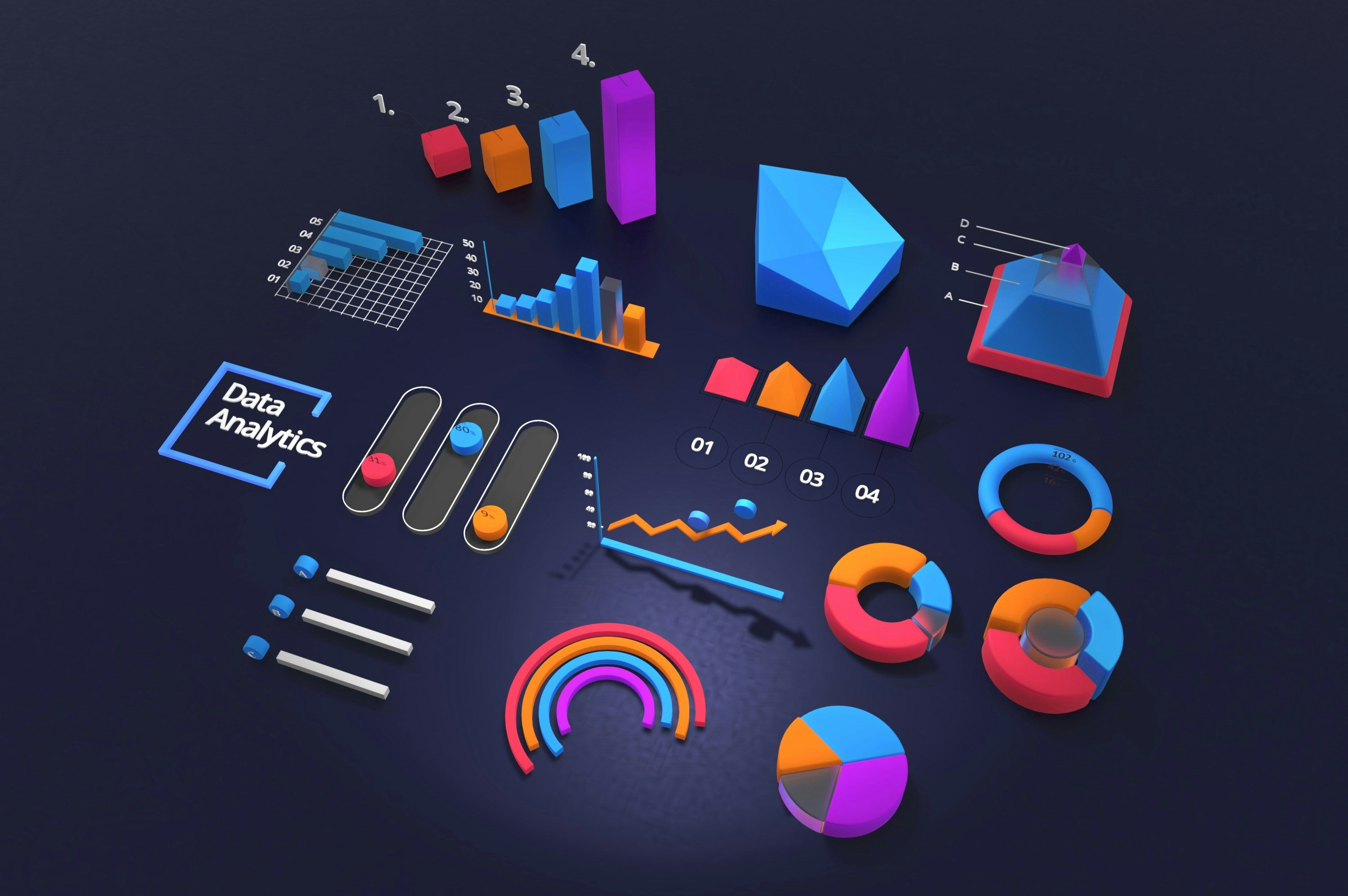Artificial Intelligence (AI) has revolutionized how businesses operate, and cloud-based AI management platforms are at the forefront of this transformation. With capabilities like automation, predictive analytics, and real-time data insights, these tools provide businesses with the power to streamline workflows, boost efficiency, and stay ahead of the competition.

If you’re looking to integrate AI into your operations, here’s everything you need to know about top AI cloud business management platform tools and how they can transform your business.
Why AI Cloud Tools Are Essential for Businesses
AI cloud platforms are designed to combine the scalability of the cloud with AI’s powerful problem-solving abilities. Whether it’s managing large-scale projects, enhancing customer relationships, or extracting actionable insights, these tools bridge the gap between traditional systems and modern, intelligent business management solutions.
Key Benefits of AI Cloud Business Management Tools
● Automation of Routine Tasks
Alleviate time-consuming tasks, allowing your team to focus on strategic priorities. Tools like Jasper automate content creation, while platforms such as Notion AI streamline knowledge management.
● Real-Time Data Insights
Platforms like SAP HANA Cloud enable instant access to data for faster decision-making, especially crucial for supply chain and finance operations.
● Scalability and Integration
These tools grow with your business, integrating seamlessly with existing software to create cohesive workflows. For example, Microsoft Azure AI is known for its compatibility with popular enterprise tools.
● Improved Decision-Making
By harnessing predictive analytics, platforms such as Oracle AI Cloud Services offer projections that inform better decision-making.
Now, let's explore the top AI cloud business management platform tools that you need to know about.
Top AI Cloud Business Management Platform Tools
1. Google Cloud AI Platform

Google Cloud AI is a powerhouse for businesses looking to harness the full potential of AI. With tools like AutoML and Vertex AI, Google provides an end-to-end environment for building, training, and deploying machine learning models.
Key Features:
● Automated model building with AutoML.
● Integration with BigQuery for analytics.
● Custom AI workflows via Vertex AI.
● Use Case: Ideal for predictive analytics and automation across industries, from e-commerce to healthcare.Learn more about Google Cloud AI.
2. Microsoft Azure AI

Azure AI is a comprehensive suite of services that simplifies the process of developing and deploying machine learning models. Its tools include Azure Cognitive Services for vision, speech, and language processing.
Key Features:
● Scalable AI solutions tailored for businesses of all sizes.
● Integration with Azure Databricks for big data projects.
● AI-driven automation for enhancing productivity.
● Use Case: Enterprises seeking flexible, scalable AI solutions to boost operations.More details about Microsoft Azure AI.
3. IBM Watson Assistant
Known for its exceptional natural language processing (NLP) capabilities, IBM Watson Assistant is a conversational AI platform designed to create intelligent virtual assistants.
Key Features:
● Multi-turn conversation support for complex interactions.
● Tools for analyzing conversation analytics.
● Customizable chatbot workflows.
● Use Case: Businesses in customer service, healthcare, and retail looking to innovate with conversational AI. Explore IBM Watson Assistant.
4. Oracle AI Cloud Services
Oracle’s AI Cloud Services focuses on enhancing automation and decision-making across business functions such as finance, HR, and marketing.
Key Features:
● Pre-built AI models for business processes.
● Real-time data insights for crucial decision-making.
● Integration with Oracle Cloud for seamless adoption.
Use Case: Businesses seeking to speed up automation and optimize decision-making processes.Discover Oracle AI Cloud Services.
5. Salesforce Einstein AI
Salesforce’s AI-powered Einstein enhances customer relationship management (CRM) by offering predictive analytics, automation, and personalization.
Key Features:
● AI-powered CRM for tailored customer experiences.
● Predictive analytics for marketing and sales strategies.
● Seamless integration with the Salesforce ecosystem.
● Use Case: Businesses focused on building personalized customer journeys and streamlining marketing efforts.Read more about Salesforce Einstein.
6. SAP HANA Cloud
SAP HANA is a fully managed, in-memory database that delivers real-time insights and advanced analytics.
Key Features:
● High-speed data access with in-memory computing.
● Unified processing for both analytical and transactional tasks.
● Strong integration within SAP’s ecosystem.
● Use Case: Ideal for financial services, supply chain management, and industries requiring quick access to data insights.Learn about SAP HANA Cloud.
7. Databricks Lakehouse Platform
For businesses looking to integrate data lakes and data warehouses, Databricks Lakehouse offers an innovative solution.
Key Features:
● Unified approach to data analytics, engineering, and machine learning.
● Delta Lake technology for reliable data transactions.
● Natural compatibility with popular BI tools and AI frameworks.
● Use Case: Suitable for industries managing large-scale data analytics projects.Find out about Databricks Lakehouse.
8. Jasper
Jasper excels at content creation, helping businesses generate marketing copy, blog posts, and even entire reports with ease.
Key Features:
Customizable AI templates for various industries.
Integration with research tools for accurate sourcing.
Image generation features for creative content.
Use Case: Perfect for marketing teams aiming to reduce content creation time while maintaining quality.Learn more about Jasper AI.
How to Choose the Right AI Cloud Platform

When selecting the best AI cloud business management platform tools, consider the following factors:
● Business Needs
Define your goals and choose a platform that aligns with them. For instance, if you need customer engagement, tools like IBM Watson Assistant are ideal.
● Scalability
Opt for a platform like Microsoft Azure AI, which can scale with your operations as your business grows.
● Integration
Ensure the tool integrates well with your existing workflows and software. Platforms like Salesforce Einstein offer seamless integration within their ecosystems.
● Budget
Assess the cost-effectiveness of the platform based on features, implementation costs, and long-term scalability. learn more about Choose the Right Web Design
Final Thoughts
AI cloud business management tools are no longer optional but essential for modern enterprises. Platforms like Google Cloud AI, Microsoft Azure AI, and Salesforce Einstein are leading the charge in transforming how businesses approach everything from automation to analytics.
By investing in these tools, you position your organization for greater efficiency, smarter decision-making, and scalable success.
To find the right platform for your business, explore the above options and see how they align with your needs.
The future of intelligent business management is here, and it’s time for your company to take advantage of these cutting-edge tools.
Frequently Asked Questions
1. What are AI cloud business management platform tools?
AI cloud business management platform tools are advanced cloud-based systems that use artificial intelligence to optimize business processes.
They help automate tasks, deliver predictive analytics, and streamline operations for better efficiency.
2. What benefits can these tools bring to my business?
These tools automate repetitive tasks, provide real-time insights for better decisions, scale as your business grows, and enhance operational efficiency.
For example, tools like Microsoft Azure AI are known for boosting automation and productivity.
3. How do I choose the right AI cloud platform for my business?
Consider your business requirements, scalability, integration needs, and budget. For seamless CRM integration, Salesforce Einstein is a great choice. Demos and trials can provide hands-on evaluation.
4. Are these tools suitable for small businesses?
Yes, many tools, like Google Cloud AI and Jasper, offer scalable solutions that cater to small businesses, allowing them to improve operations without excessive costs
5. What industries benefit most from AI cloud platforms?
Industries like healthcare (patient data analysis), finance (fraud detection), retail (personalized engagement), and manufacturing (supply chain optimization) can benefit significantly from these platforms.
6. How do AI cloud tools ensure data security?
Leading platforms use robust encryption, adhere to data protection laws, provide regular updates, and implement secure access controls to protect your sensitive data.
7. Can these platforms integrate with existing systems?
Yes, most tools are designed for smooth integration. For example, Oracle AI Cloud Services works seamlessly within Oracle’s infrastructure, while Microsoft Azure AI supports many enterprise tools.
8. Are there costs associated with deploying these platforms?
Costs vary by platform and features. Many offer subscription or pay-as-you-go models.
Platforms such as SAP HANA Cloud start at $150 per user, while others like Jasper customize pricing to your needs.
9. Can AI platforms enhance customer engagement?
Absolutely. Solutions like IBM Watson Assistant and Salesforce Einstein provide virtual assistants, personalization, and predictive analytics, improving the customer experience significantly.
10. What’s the future of AI cloud business management?
The future involves more automation, smarter predictions, and deeper integrations. Businesses using these tools will experience enhanced efficiency, better decision-making, and scalable growth.



